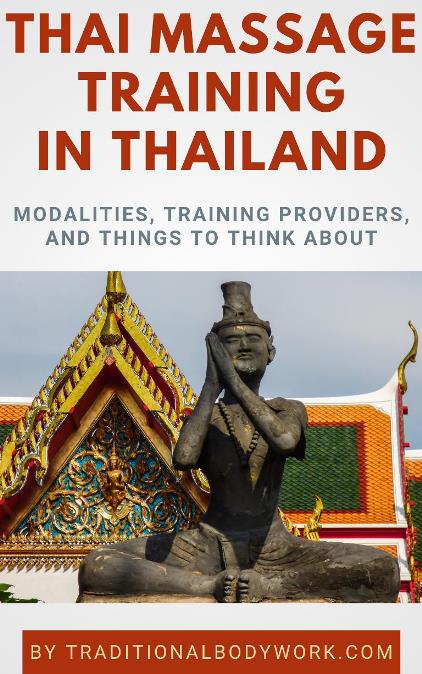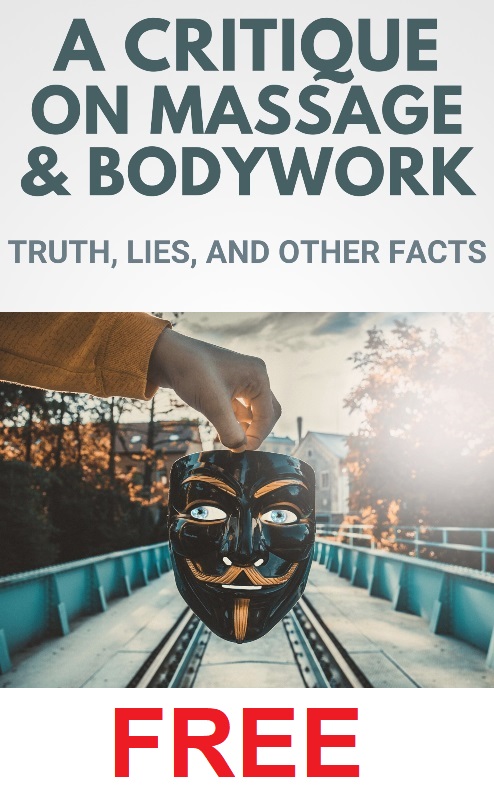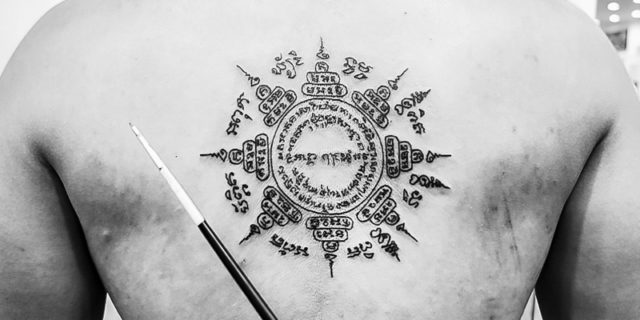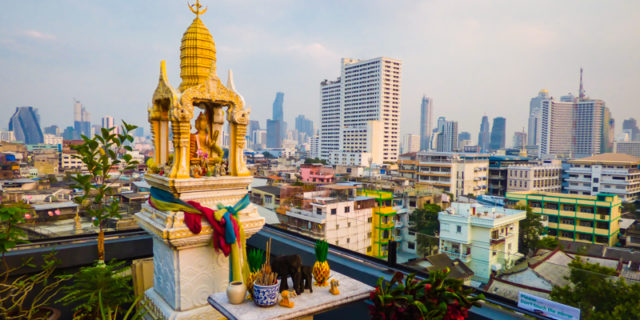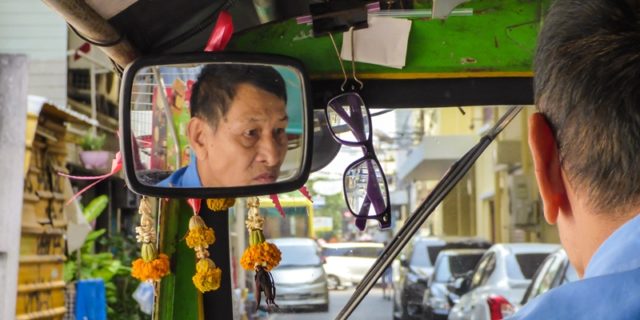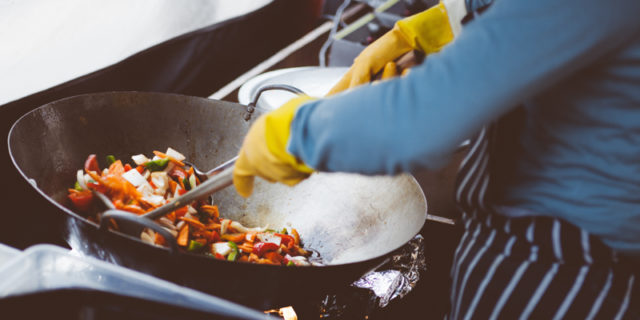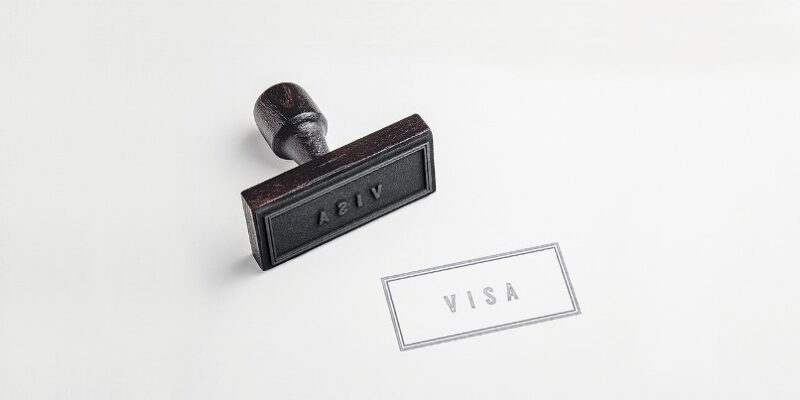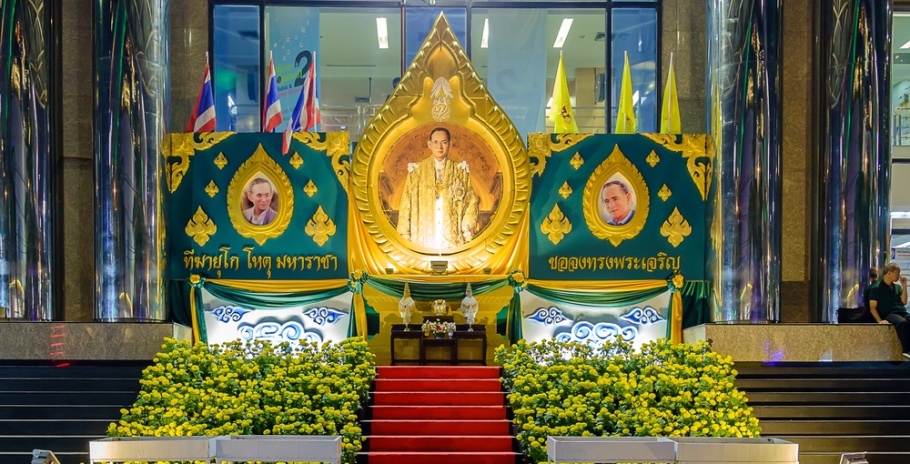
It can’t be missed in Thailand — the King’s photograph is omnipresent; on the streets, at bus and train stations, in shops and shopping malls, in schools, the police station, and in all governmental institutions. And not just little tiny ignorable pictures… no, big enough, sometimes very large, in any case — not to be overseen.
Don’t think that all Thais like the Royal Family — but even those who don’t, have to. Not having a picture of the King in your shop or business means you will lose (or not get) clients. You will have a hard time, because nobody in Thailand wants to be associated with an individual or business not respecting the King because of the nasty consequences that could arise.
So why is that?
Well, there’s a very tough law in Thailand called the lèse majesté, which is part of the Thai Criminal Code since 1908. It means it’s illegal to defame, insult, or threaten the king, queen, heir-apparent, or regent and the punishment is three to fifteen years of imprisonment, making it the world’s harshest lèse majesté law and most possibly the strictest criminal-defamation law anywhere.
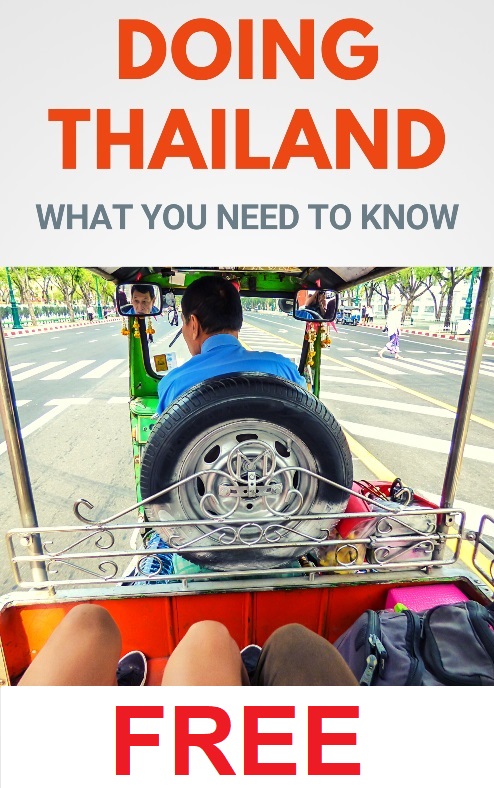
Moreover, this law is strictly enforced. It’s a thing foreigners should know, because, for instance, stepping on money with the picture of the King on it, having criticism on the Royal Family, or throwing darts on a dartboard with the picture of the King on it (this actually happened to a UK vacationer), can have a dreadful outcome for the uninformed tourist in Thailand.
What makes the whole thing even more wobbly is that there’s is no legal definition of what actions exactly constitute lèse majesté, and there is (and has been) plenty of room for (opportunistic) interpretations. On top of that, the law also applies to any previous monarchs. Even the attempt to commit lèse majesté or making a sarcastic comment about the King’s pets have been prosecuted.
If a Thai wants to get you in trouble, he or she can just file a complaint. In Thailand, when it comes to lèse majesté, any person can file against anyone else and these kind of complaints must always be formally investigated (and they are). Also, bail will seldom be granted and you will spend a undetermined time in jail during the “investigations.”
Military coup makers have regularly used alleged lèse-majesté as a prerequisite for overthrowing an elected government or to get rid of opponents. Mind that after the latest 2014 military coup d’état, Thailand had the highest number of lèse-majesté prisoners in the nation’s history and the junta granted authority to army courts to prosecute lèse-majesté. In most cases, convictions have resulted in very harsh sentences.
So how did this terror come about?
Thailand is a constitutional monarchy and the King of Thailand is the Head of State and Head of the currently ruling Royal House of Chakris, Head of the Royal Thai Armed Forces, adherent of Buddhism and Upholder of Religions.
The institution of monarchy in Thailand has its roots in the establishment of the Sukhothai Kingdom in 1238. In 1932, Thailand became a constitutional monarchy.
Yet, to grasp the immense power and long arm of the Thai Royal Family i.e. the King in Thailand, one needs to understand that the current implementation of the monarchy evolved through 800 years of absolute rule based on three significant concepts.
The first concept is that of the warrior-ruler, in which the king derives his powers from his military might. The second concept is that of the paternal-ruler, in which the king presides over his people as a father would preside over and manage his children. And finally, the third concept is that of the divine-ruler, in which the idea is present that the King is an incarnation of a Bodhisattva (enlightened one), basing his power on his religious and moral power, and his purity of blood.
Although the role of the Thai monarchy has been increasingly challenged by students, young people of the current generation, scholars, media, and observers, nothing has changed really. In fact, criticizing lèse majesté is considered lèse majesté, and as a result dozens of arrests, hundreds of criminal investigations, and multiple imprisonments have been made since.
It’s very obvious that the lèse majesté law is and has been used to protect governments, conservative elites, and to shield military coups from legal criticism.
The Royal Family has always had very close and intimate relationships with the military and (appointed) high or constitutional court members. The strategy was and is to materialistically and financially privilege high ranking members in exchange for protection of the power, wealth, and status quo of the monarchy.
The military portrays itself as the ultimate defender of the monarchy and many coups that were launched during King Bhumibol’s reign (the former King who after seven decades of reign died in 2016) were done in the name of protecting the King — coups that were eventually endorsed by the King.
But today it seems that the military (who is again in power since 2014) has its own agenda and consequently a fierce power-struggle sweeps across Thailand. Although the military has long been loyal to the King, dominating the nation together, it seems that the military wants to stay in power, which has been proven by its participations in the recent “democratic” elections.
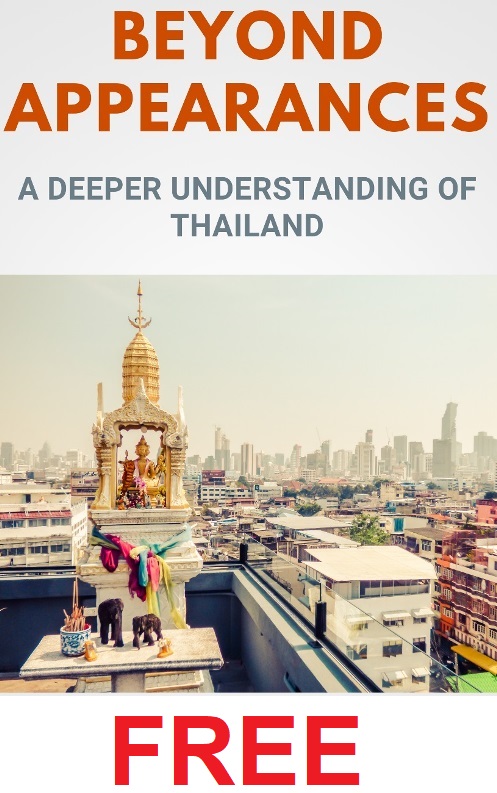
What the current military rulers really want (that is, the military junta led by General and now self-appointed Prime-minister Prayut Chan-o-cha) is explicit reassertion of the military’s role as the palace guardian to solidify its (the ruling junta) prerogatives and legitimacy. The need to do so has arisen, because the junta’s legitimacy is in question since the death of the former King Bhumibol and the subsequent ascension to the throne of his son King Maha Vajiralongkorn.
Nevertheless, the monarchy (as official head of the army) has enormous influence over the armed forces because it has the right to endorse all military reshuffles, and moreover, an important part of the military is still very loyal to the King and in lesser extent loyal to the current ruling junta leader Prayut Chan-o-cha.
In past years, we’ve seen the junta playing “Mr. Loyal-Royal Nice Guy” by symbolically linking itself to the monarchy’s past, creating royal events, organizing tributes, acting as major contributors to “royal projects,” and strictly enforcing the lèse majesté law, and so on.
And although the recent governmental elections (in March 2019) showed an important win (but not absolute majority) for the ruling military junta (although the results were contested by many as due to skewed elections), which of course has boosted their confidence, they will need to give up absolute power if they want to follow the democratic outcome of the elections.
For now it still remains a question what will happen, how things will look like in upcoming years, and it’s only time that can reveal us the near future of Thailand.


